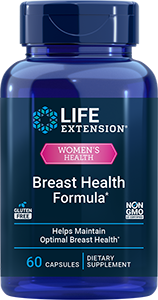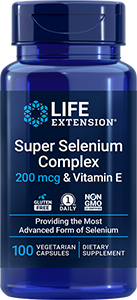
Newsletter
Newsletter
Meta-Analysis of Clinical Trials Finds Association Between CoQ10 and More Favorable Liver Enzyme Levels

A systematic review and meta-analysis of randomized trials concluded that coenzyme Q10 (CoQ10) was associated with significantly lower levels of three liver enzymes that are usually elevated in people with liver disorders:
- Alanine aminotransferase (ALT)
- Aspartate aminotransferase (AST)
- Gamma-glutamyl transferase (GGT)
The findings were published on June 7, 2023, in Food Science & Nutrition.1
“According to our knowledge, this is the first study to review the effects of taking CoQ10 on liver enzymes," study author M.S. Damaneh and colleagues wrote. They concluded that CoQ10 “significantly improves circulating ALT, AST, and GGT levels; therefore, it might positively affect liver function.”
The researchers analyzed the findings of 15 clinical trials, which included a total of 712 males and females aged 11 to 61 years. The participants had medical conditions including coronary heart disease, type 1 or type 2 diabetes, nonalcoholic fatty liver disease or elevated lipids, or were healthy individuals who engaged in strenuous exercise that can temporarily elevate liver enzymes. Subjects in these trials received CoQ10 doses ranging from 100 to 400 milligrams per day consumed for two to 24 weeks.
How does CoQ10 support the liver? “Since CoQ10 is an essential cofactor for energy metabolism, it is also important for liver function,” the authors explained. Some forms of CoQ10 are more available to your body than others.4-6 Unfortunately, the body’s levels of CoQ10 levels decline with age.
People taking statin drugs and other medications should speak with their doctors about maintaining healthy CoQ10 levels, as these medications may lower CoQ10 levels.
Products
Apply What You’ve Learned: CoQ10
- CoQ10 is a coenzyme made by most human cells.2 It is found in the highest concentrations in the heart, brain, kidneys and liver.3
- CoQ10 is involved in the production of energy in all cells that produce it. It exists in an oxidized form known as ubiquinone and a reduced form known as ubiquinol. Research indicates that the intake of ubiquinol may result in better absorption than ubiquinone.4-6
- CoQ10 is present in many foods, but only in small quantities.7 Because CoQ10 levels decline in some tissues during aging, many individuals choose to make up for this deficit by consuming additional CoQ10.
- Since CoQ10 is fat-soluble, its absorption will be enhanced by taking it with a meal that contains fat or using capsules that contain vegetable oil.
References
- Damaneh MS et al. Food Sci Nutr. 2023 Jun 7;11(9):4912-4925.
- Mantle D et al. Antioxidants (Basel). 2020 May 5;9(5):386.
- Spindler M et al. Neuropsychiatr Dis Treat. 2009;5:597-610.
- Zhang Y et al. Food Funct. 2018 Nov 14;9(11):5653-5659.
- Prangthip P et al. J Diet Suppl. 2016 Nov;13(6):647-59.
- Failla ML et al. J Agric Food Chem. 2014 Jul 23;62(29):7174-82.
- Pravst I et al. Crit Rev Food Sci Nutr. 2010 Apr;50(4):269-80.
Featured Life Extension Magazine® Article
Astaxanthin and Aging Skin
By Michael Downey
Astaxanthin is a carotenoid: a family of plant pigments that includes alpha-carotenoid, beta-carotene, lycopene β-cryptoxanthin, lutein and zeaxanthin. Astaxanthin plays a role in the health of the brain, heart and eyes. Recent research has revealed that astaxanthin also has a role in skin health.
Astaxanthin not only helps protect the skin from some of the damaging causes of skin aging but may also improve moisture, wrinkles and elasticity. One study in human participants that involved exposing areas of the skin to controlled levels of UV light found that astaxanthin improved both irradiated and nonirradiated areas.
Read Full Article
What's Hot
Health Concern
Meta-analysis affirms association between CoQ10 and lower blood pressure
Results from a systematic review and meta-analysis of trials that examined the effects of coenzyme Q10 (CoQ10) revealed a significant reduction in systolic blood pressure in association with CoQ10 in patients with cardiometabolic disorders.

Cirrhosis
This protocol will discuss the nature, causes and outcomes of cirrhosis; outline current and emerging methods of diagnosis and treatment; and summarize state-of-the-art nutritional support.
Related Life Extension Magazine® Articles

CoQ10: More Than Just Heart Health
Studies on CoQ10 continue to document a diverse range of body-wide applications beyond heart health.

Role of CoQ10 in Aging
CoQ10 improves cellular energy while reducing damaging factors that contribute to common disorders of aging.
Highlight
Wellness Blog
Keep informed on the latest in nutrition, healthy living and self-care in Life Extension’s Wellness Blog
Learn MoreLife Extension Magazine® Issue Now Online
A remarkable number of healthy-longevity findings have been published over the past 18 months.




